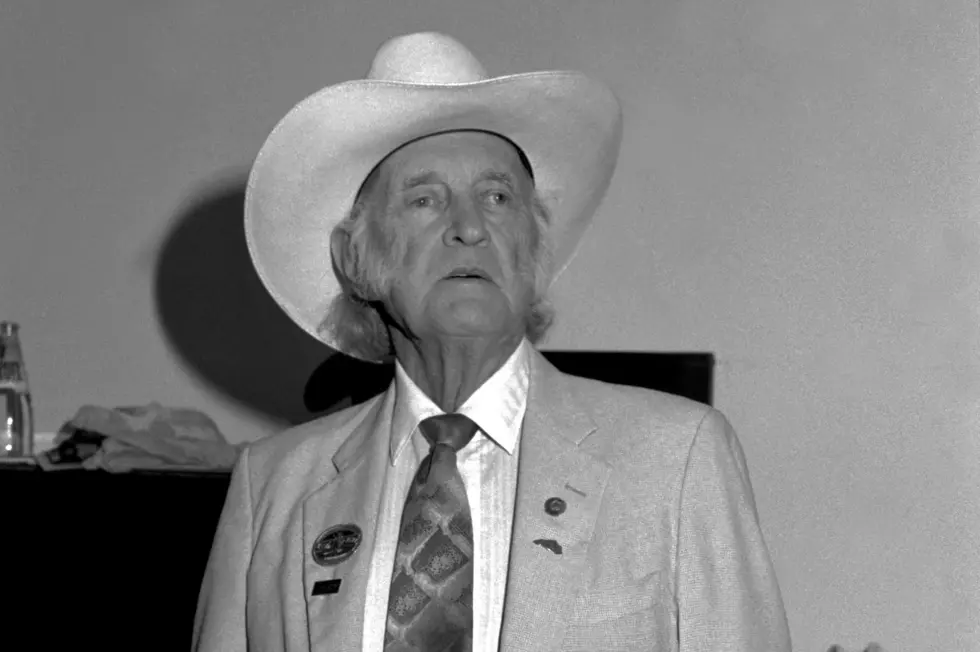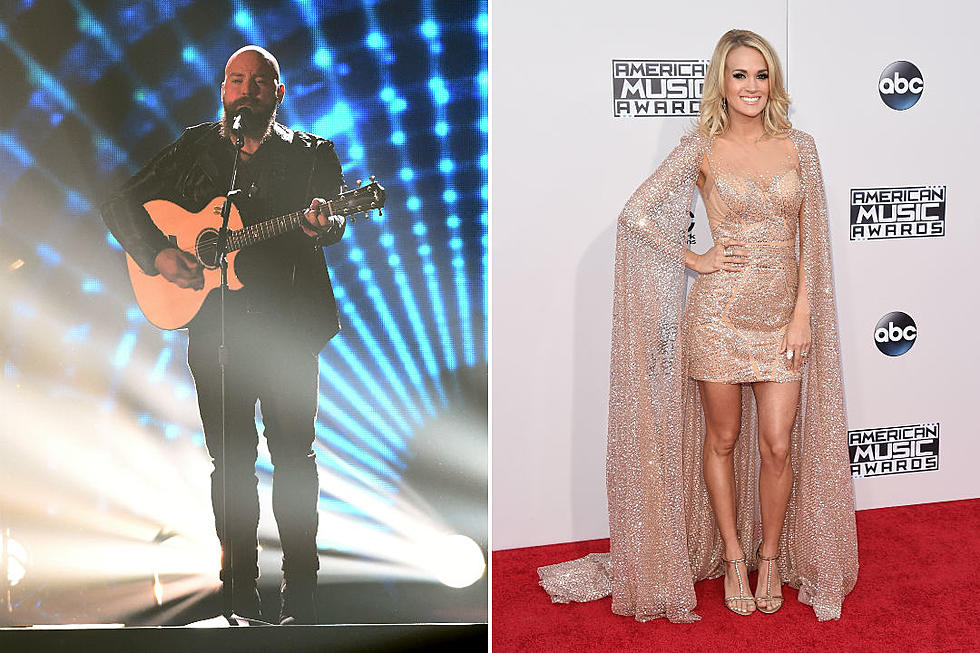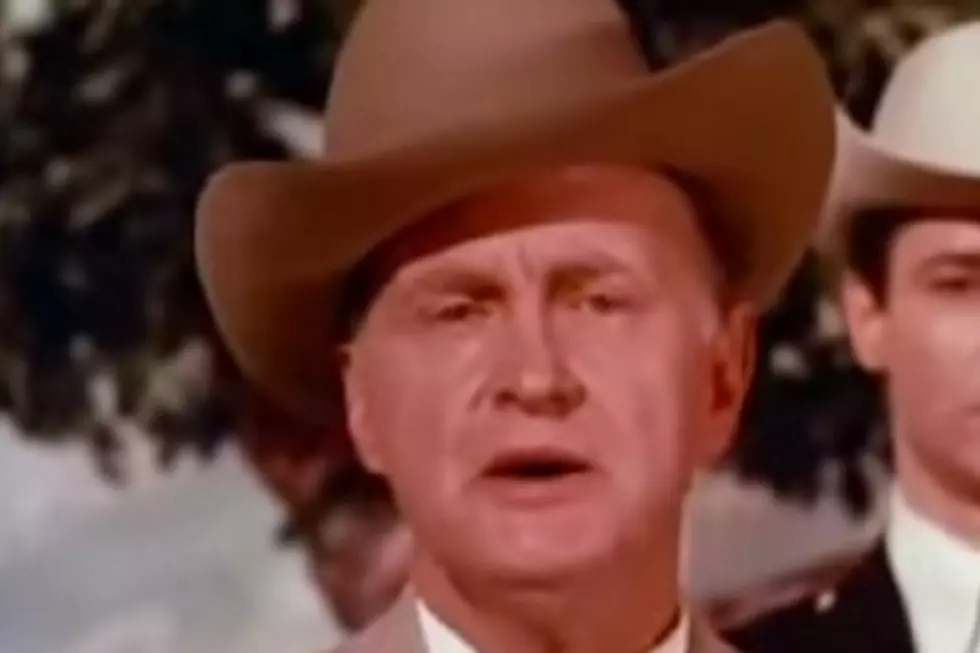
Top 5 Bill Monroe Songs
The Father of Bluegrass, Bill Monroe was born in 1911 and began making music when he was just 16 years old. For nearly 70 years, the singer, songwriter and mandolin player built and shaped what we know today as bluegrass music. The genre even gets its name from Monroe's early band, the Blue Grass Boys!
What began in 1927 as the Monroe Brothers -- made up of Monroe, two of his brothers and a childhood friend -- eventually morphed into the Blue Grass Boys, and bluegrass music was born. A master mandolin player and skilled songwriter, Monroe infused new life into country music in the 1930s and '40s, bringing lonesome lyrics, high tenor harmonies, fast tempos and instrumental complexity to the genre, and inadvertently creating a new genre all its own.
Monroe was responsible for jump-starting the careers of many fellow bluegrass players, including Lester Flatt and Earl Scruggs, and artists in a number of genres -- including Elvis Presley, the Everly Brothers, George Jones and Ricky Skaggs -- count him as a major influence. Monroe was inducted into the Nashville Songwriters Hall of Fame in 1971, the Country Music Hall of Fame in 1979 and the Rock and Roll Hall of Fame in 1997, making him one of only five artists to be honored by all three entities. He also received a Grammy Lifetime Achievement Award in 1993 and was awarded the National Medal of Arts in 1995.
Monroe died in 1996, at 84 years old, leaving behind a legacy that will endure for generations. Keep reading to hear five of his best songs:
- 5
"Blue Moon of Kentucky"
1946Monroe was born in Rosine, Ky., so it's only fitting that one of his most beloved songs is about his home state. "Blue Moon of Kentucky" introduced a bluegrass spin on the classic country waltz and has become a staple for virtually every bluegrass artist. It's been covered by a diverse range of musicians, most notably Elvis Presley, Paul McCartney and Patsy Cline. In 2002, the song was selected by the Library of Congress to be added to the National Recording Registry, and in 2003, it was ranked by CMT at No. 11 on their list of the 100 Greatest Songs in Country Music.
- 4
"Kentucky Waltz"
1945A plaintive ballad about lost love, "Kentucky Waltz" was Monroe's highest-ranking song on the country charts, peaking at No. 3. He sings the tune with heartbreaking loneliness while his mandolin softly warbles behind him.
"We were waltzing that night in Kentucky / Beneath the beautiful harvest moon / And I was the boy that was lucky / But it all ended too soon," Monroe laments in the song. "As I sit here alone in the moonlight / I see your smiling face / And I long once more for your embrace / In that beautiful Kentucky waltz."
- 3
"Swing Low Sweet Chariot"
1951Bluegrass artists often cover classic hymns and spiritual songs, and Monroe's cover of "Swing Low Sweet Chariot" is a perfect example of the genre's power to bring new life (and a new audience) to time-honored tracks. The first known recording of "Swing Low Sweet Chariot" is from the Fisk Jubilee Singers, of Fisk University, in 1909, and while it has been covered countless times by countless artists since then, Monroe's 1951 version stands out for its instrumental accompaniment and the soulful tenor he brings to the song.
- 2
"New Mule Skinner Blues"
1950In 1930, country pioneer Jimmie Rodgers wrote and recorded "Mule Skinner Blues," a song about a down-on-his-luck mule skinner looking for work. Twenty years later, after releasing a cover of Rodgers' composition, Monroe wrote new lyrics (with help from George Vaughn Horton) and added "new" to the title, and "New Mule Skinner Blues" was born. It was his first recording as a solo artist after leaving the Monroe Brothers and became an instant bluegrass classic for its use of Monroe's high-tenor yodeling and focus on the mandolin and fiddle as lead instruments.
- 1
"Uncle Pen"
1950Written in honor of his uncle, Pendleton Vandiver, "Uncle Pen" recounts some of Monroe's earliest musical influences at the feet of his fiddle-playing family member. According to the song, Uncle Pen was known for playing his fiddle at town dances; whenever he picked up his bow, the instrument sang under his masterful command.
"Late in the evenin', about sundown / High on the hill and above the town / Well, Uncle Pen played the fiddle, Lordy, how it would ring / You could hear it talk, you could hear it sing," Monroe recounts.
More From KEAN 105










